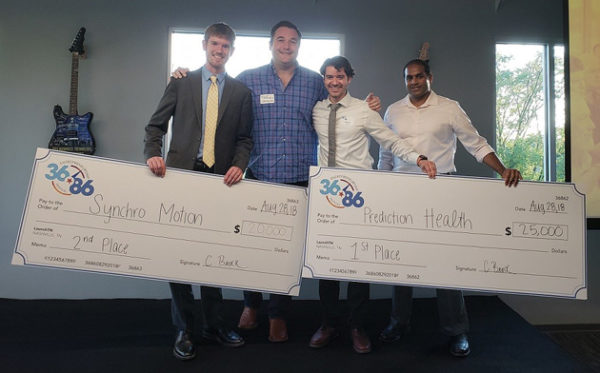
Two teams of Vanderbilt University entrepreneurs involved with the National Science Foundation’s Innovation Corps training program took home the top prizes at Tuesday’s 36|86: Student Edition pitch competition.
Vanderbilt began offering the I-Corps program last year through the Wond’ry, its center for entrepreneurship, innovation and making.
First place in the pitch competition and $25,000 in startup funds went to PredictionHealth, a service for doctors that automatically documents patient encounters at the tap of a button. PredictionHealth’s app listens to patient-doctor conversations and uses machine learning, natural language processing and human scribes to turn the audio into medical documentation.
Team members are Pedro Teixeira and Ravi Atreya, who are students in Vanderbilt’s dual M.D. and Ph.D. program, and Michael Poku, who earned both his Vanderbilt M.D. and a Harvard University MBA. They will start the I-Corps program in the coming weeks.
Second place and $20,000 went to Synchro Motion, which is developing a smart prosthetic ankle that anticipates users’ movements and adjusts to stairs, steep grades and uneven terrain. Team members are mechanical engineering graduate student Harrison Bartlett and mechanical engineering postdoctoral scholar Brian Lawson. They were the first team to complete the I-Corps program after Vanderbilt became an official site.
I-Corps teams receive grants to help them explore the commercial potential of devices they’ve designed. Through the seven-week program, participants determine if their invention is truly different from existing technology, and, once validated, develop a go-to-market commercialization strategy to maximize their potential success.
36|86: Student Edition, part of 36|86 Entrepreneurship Festival, is an opportunity for student entrepreneurs to network and learn about what is happening in the startup world.